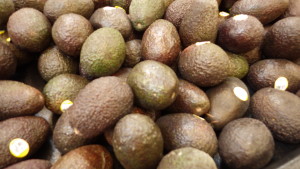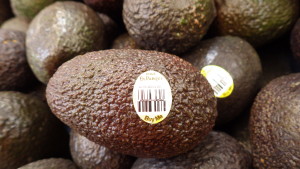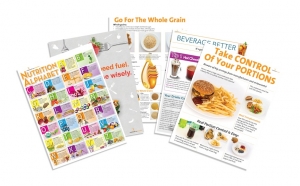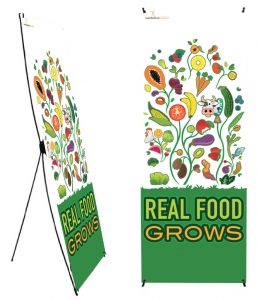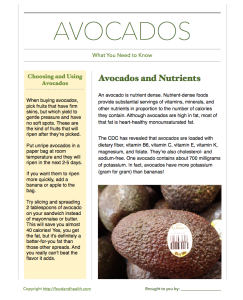“They’re high in calories.”
“They’re high in fat.”
“But it’s a good fat.”
Those are all statements I frequently hear about the avocado.
What about you? Do you shy away from avocados because of the fat or calories? Or do you make them a part of your diet?
Today, let’s take a look at the pros and cons of the humble avocado.
An avocado is nutrient dense. Nutrient-dense foods provide substantial servings of vitamins, minerals, and other nutrients in proportion to the number of calories they contain. Although avocados are high in fat, most of that fat is heart-healthy monounsaturated fat.
According to the Centers for Disease Control and Prevention, avocados are loaded with dietary fiber, vitamin B6, vitamin C, vitamin E, vitamin K, magnesium, and folate. They’re also cholesterol- and sodium-free. One avocado contains about 700 milligrams of potassium. In fact, avocados have more potassium gram for gram than bananas! Furthermore, avocados are loaded with the phytochemicals that are thought to reduce the risk of some types of cancers and other chronic diseases.
So what about the calories?
The calories in an avocado are not messing around. Two tablespoons of mashed avocado (that’s 1/5 of the whole thing or about 1 oz) provide about 55 calories. So, if you eat a whole avocado, then you’re getting about 275 calories. That’s a lot of calories, especially if you’re on a calorie-restricted diet.
However, the key word is moderation.
A little avocado can add some real nutrition and variety to a meal. Plus, sometimes avocado can offer a nutrient-rich alternative to another less-healthful fat. Try slicing and spreading 2 tablespoons of avocado on your sandwich instead of mayo or butter. This will save you almost 40 calories! Yes, you get the fat, but it’s definitely a better-for-you fat than those other spreads. And you really can’t beat the flavor it adds.
When buying avocados, pick fruits that have firm skins, but which yield to gentle pressure and have no soft spots. These are the kind of fruits that will ripen after they’re picked. Put unripe avocados in a paper bag at room temperature and they will ripen in the next 2-5 days. If you want them to ripen more quickly, add a ripe banana or apple to the bag. Why? These fruits give off a natural ethylene gas that helps to ripen the avocados. Once they’re ripe, use them right away. You can also put them in the refrigerator, where they will last for a couple days.
So, when you ask whether you should make avocados a part of your diet, I say yea!
By Cheryle Jones Syracuse, MS, Professor Emeritus at The Ohio State University
Looking for more cooking and nutrition resources? Look no further! We’ve got you covered! We are here when you want to look your very best right now.
You made it all the way to the end! For your persistence, please enjoy a brand-new free handout! It’s the perfect guide to avocados.
New Products Available Now
Check out the Nutrition Nuggets page which features over 20% off three special products each week.
Connect with us on Google Plus















